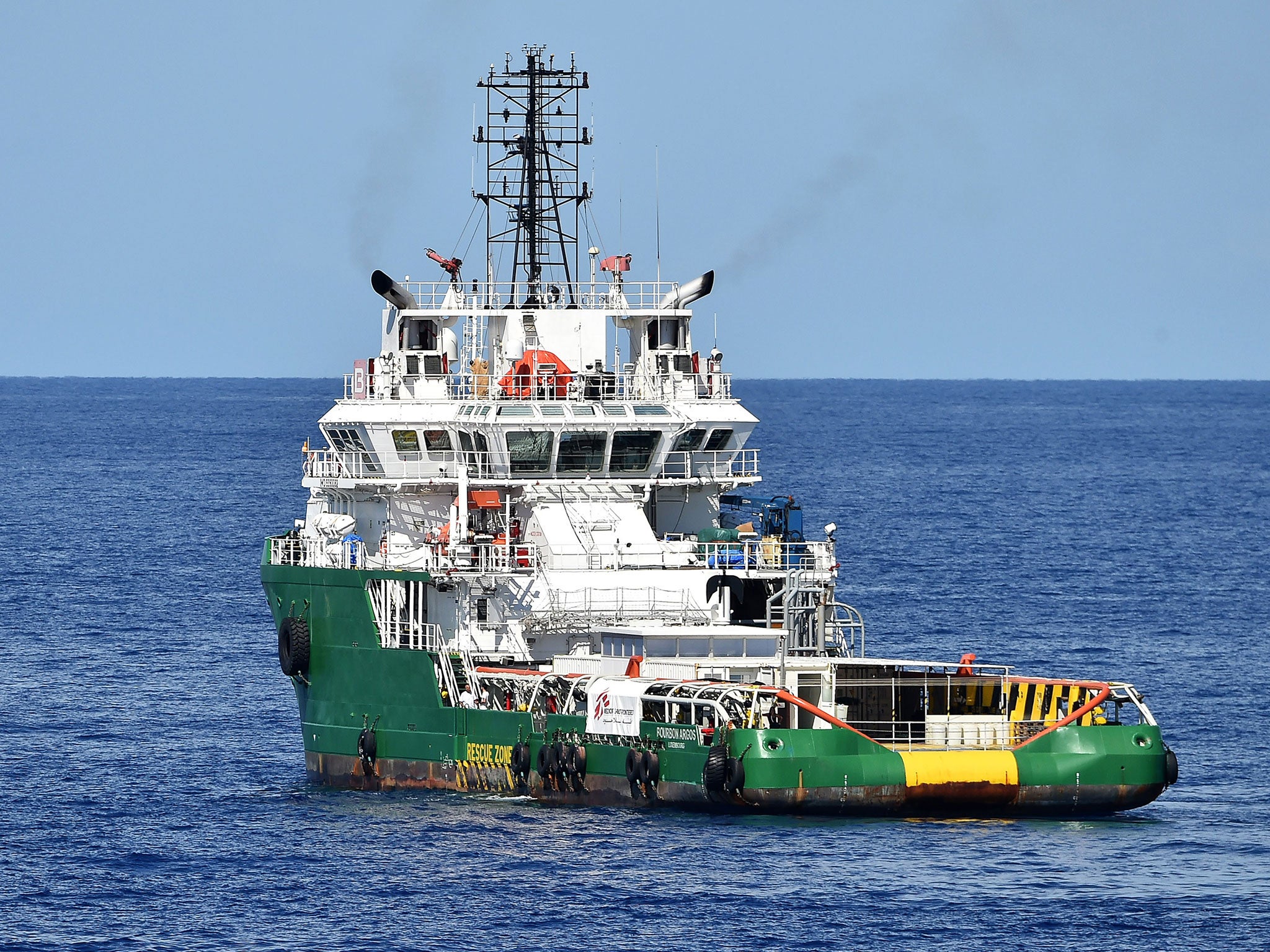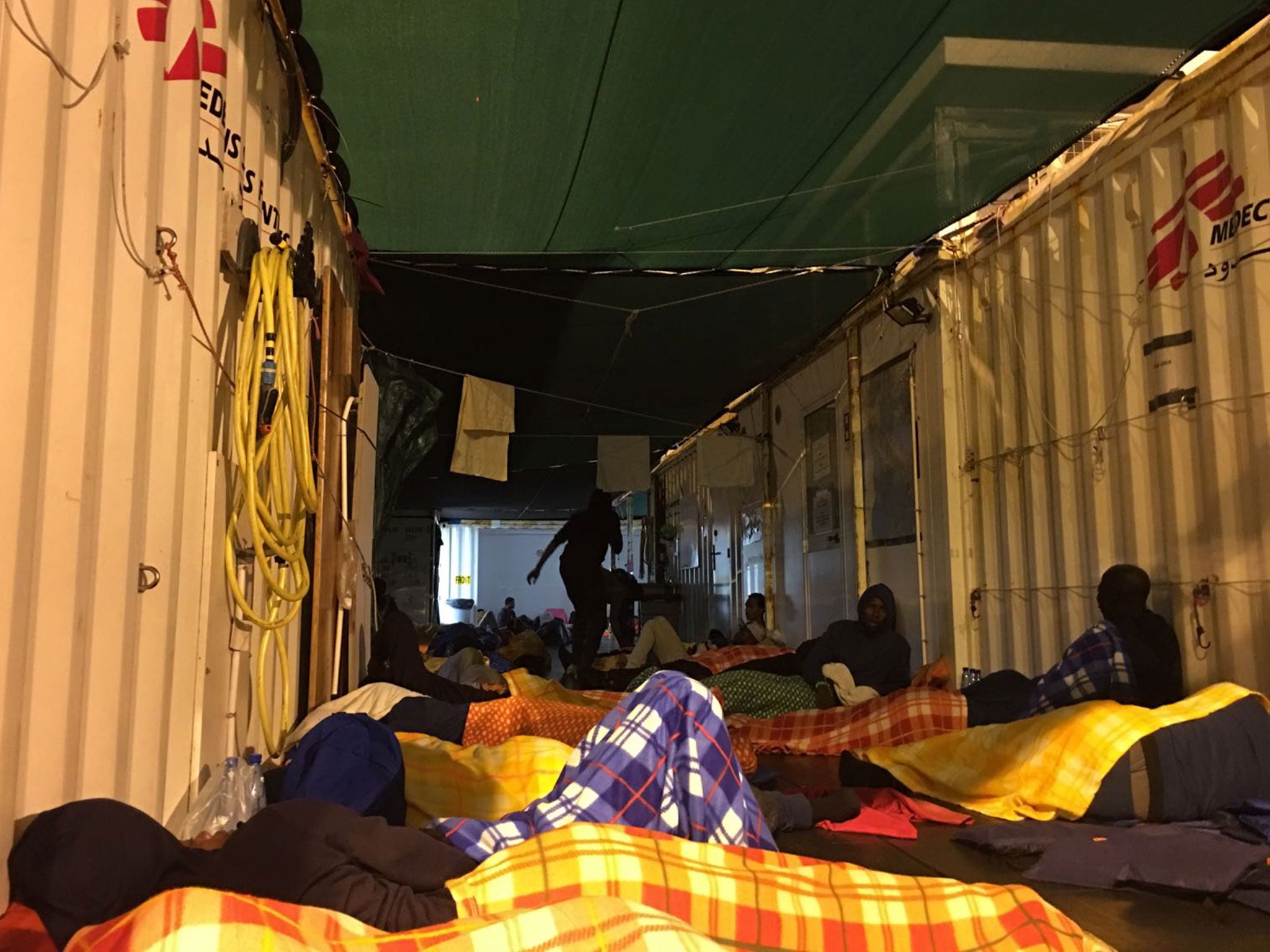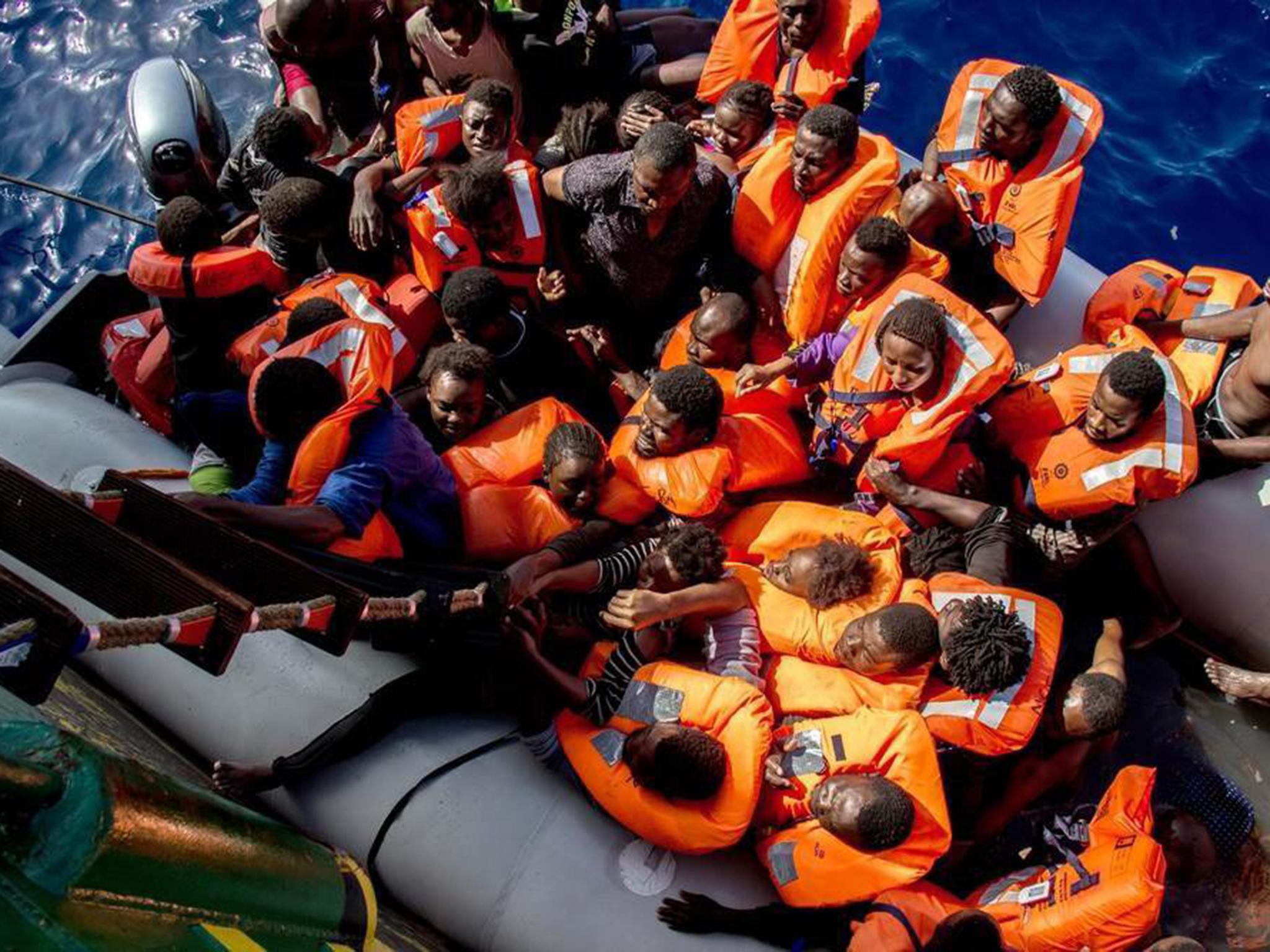Refugee crisis: On the largest rescue ship in the Mediterranean as it battles to save lives
‘Together we can try to do our best but we will not be able to save everyone’

Your support helps us to tell the story
From reproductive rights to climate change to Big Tech, The Independent is on the ground when the story is developing. Whether it's investigating the financials of Elon Musk's pro-Trump PAC or producing our latest documentary, 'The A Word', which shines a light on the American women fighting for reproductive rights, we know how important it is to parse out the facts from the messaging.
At such a critical moment in US history, we need reporters on the ground. Your donation allows us to keep sending journalists to speak to both sides of the story.
The Independent is trusted by Americans across the entire political spectrum. And unlike many other quality news outlets, we choose not to lock Americans out of our reporting and analysis with paywalls. We believe quality journalism should be available to everyone, paid for by those who can afford it.
Your support makes all the difference.The Bourbon Argos is journeying towards what has become the deadliest sea crossing in the world, on a mission to save the lives of some of the hundreds of thousands of refugees continuing to risk their lives in desperate attempts to reach safety in Europe.
The ship, run by Médecins Sans Frontières (MSF), is the largest humanitarian vessel patrolling the Mediterranean Sea, rescuing or transporting 8,534 migrants in the past six months alone.
A letter from the government of Luxembourg is pinned on the wall of the mess, recognising the international crew’s “exemplary service” providing safe passage for thousands of men, women and children.

Like other humanitarian organisations, MSF is doing what it can to boost the European Union’s limited anti-smuggling mission off the coast of Libya, where smugglers continue to launch overcrowded and unseaworthy dinghies towards European shores.
In the latest disaster on Wednesday, a dinghy is believed to have capsized in rough seas, killing up to 100 migrants and refugees.
A rescue vessel operated by Save the Children rescued almost 30 people and recovered several bodies, but with around 130 people likely have set off on board, many were feared to have drowned.
Little over a week ago, the crew of the Bourbon Argos was witness to another disaster, finding the bodies of 29 men and women at the bottom of a rubber boat.
Prosecutors believe the wooden floor of the vessel broke shortly after it was launched from Libya, causing water to seep in as people slid towards the dip in the middle.
In panicked efforts to bail out the boat, passengers are believed to have attempted to use a plastic fuel container, but while trying to empty it overboard they tipped the contents inside, creating a toxic liquid that started burning through the refugees’ skin while giving off noxious fumes.

MSF workers said they could not be sure whether the victims were drowned or killed by fuel inhalation, but the solution was so potent that they had to limit contact with the boat for their own safety.
Among more than 100 survivors was a man whose brother had reportedly jumped off the boat to escape the burning substance and drowned, and a father with his young baby who had lost his wife in the disaster.
Seven of those rescued had to be evacuated for urgent medical treatment, with dozens more suffering chemical burns that left several with skin peeling from their bodies.
Michele Telaro, the Bourbon Argos’ field coordinator, described “horrific scenes” as the corpses were recovered over two days to be held in a shipping container that serves as the ship’s morgue, just metres from grieving relatives.
“We were mentally prepared in theory but when you face the situation it is not the same thing,” the 41-year-old said.
“You cannot imagine the suffering for those people, they had been on the boat with those bodies for hours in extreme pain… it was clear they were traumatised.”
Mr Telaro said that although most asylum seekers rescued by the ship have witnessed violence, with a “huge majority” of women having been raped or sexually abused, the overwhelming emotion is normally relief to be safely on board.
“But in this case it was different,” he added, describing refugees weeping or simply withdrawing into themselves in shock.
The whole team were deeply affected by the disaster but, despite being given the option to leave the mission, the vast majority have stayed.
Luwam Bede, a cultural mediator who speaks to refugees in English, French and Tigrinya – one of the dominant languages in Eritrea – is among those who chose to remain.
“It’s difficult to know what to say to someone who has lost their brother that day,” she said. “I don’t even know how to begin to prepare myself; I hope that nothing like this happens again, but I know it could at any time.”
The 29-year-old, from Sweden, is on the receiving end of asylum seekers’ trauma, memories, hopes and fears for the journey ahead into Europe.
“It’s a lot to take in,” she said. “They ask a lot of questions about Europe and Italy. They talk about where they’ve come from and what they’ve experienced in Libya… they call it hell.”
Ms Bede and other translators on board give information about where passengers will be taken and how to register as asylum seekers, but with policy constantly shifting in the EU, many questions remain unanswered.
“I don’t think they’re very aware of how difficult it’s going to be or the borders,” she said.
MSF had originally intended to pull back the Bourbon Argos in October but has extended the mission as boats continue coming from North Africa, and Europe seems no closer to offering a safe or legal route to those trying to reach safety on its shores.
Recorded refugee deaths in the Mediterranean have hit an all-time high, with almost 4,000 people dying while attempting boat crossings so far this year.
In 2015, there was one death for every 269 refugees who reached European shores, but now the figure stands at one in 88. For the treacherous Central Mediterranean route, it is one in 47 according to the latest UN figures.
More than 330,000 people have so far made the journey from countries including Syria, Afghanistan, Nigeria and Iraq, with the passage from Libya towards Italy becoming the dominant route since the controversial EU-Turkey deal reduced crossings over the Aegean Sea.
The Bourbon Argos is the largest of numerous naval and humanitarian boats patrolling a search and rescue zone off the Libyan coast but numbers will dwindle as winter closes in and weather conditions continue to worsen.
Mr Telaro expects more difficult rescues ahead for his crew. “I know that we could face something similar to the last one or even worse than that,” he said.
“Together we can try to do our best but we will not be able to save everyone.”
Benjamin Hargreaves, the Bourbon Argos’ British deck manager, said the crew have prepared themselves and their ship for all eventualities.
He described last week’s rescue as “horrific” but that the disaster was only one of many refugees attempting to cross the Mediterranean will face.
“There’s so many situations that can lead to serious trouble and we just have to pick up the pieces when we find them,” said the 29-year-old.
“Obviously no one should have to see that but if we aren’t here, who else will be?”
Join our commenting forum
Join thought-provoking conversations, follow other Independent readers and see their replies
Comments